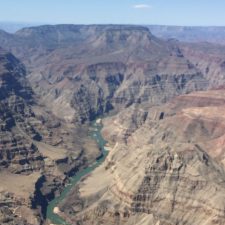From the beginning of the modern creation movement—often associated at least in some way with the landmark publication of The Genesis Flood, by John Whitcomb and Henry Morris in 1961—there have been many challenges. Over the decades, one of the glaring issues with the creation community has been the lack of biblical scholars who have been willing to critically engage in creation research. To be clear, there have been some biblical scholars involved, but they have been the exception. Scientists, nevertheless, forged ahead with research, publications, and outreach, without much help from the field of biblical scholarship.
In the meantime, much of the field of biblical studies has been capitulating to the ideas of evolution and/or millions of years. While this is a valid general criticism of the history of the modern creation movement up to this point, this is in no way a criticism of the faithful scientists who have engaged in this important research. Rather, this is an indictment on the field of biblical scholarship as a whole, which, for various reasons, has not to this point taken the lead in creation studies.
 In recent years, however, a number of scientists and biblical scholars have recognized this major lacuna in the scholarly creation community and are now seeking to address it. As a result, we have formed the Creation Theology Society. We believe that the Bible is God’s self-revelation to humanity, forming the foundation for truth and knowledge. Thus, divine revelation must be the respected and authoritative lens through which we seek to understand the world around us. Consequently, theology, historically understood as the “queen of the sciences,” must inform scientific investigation, since correct interpretation of creation depends upon correct interpretation of God’s Word.
In recent years, however, a number of scientists and biblical scholars have recognized this major lacuna in the scholarly creation community and are now seeking to address it. As a result, we have formed the Creation Theology Society. We believe that the Bible is God’s self-revelation to humanity, forming the foundation for truth and knowledge. Thus, divine revelation must be the respected and authoritative lens through which we seek to understand the world around us. Consequently, theology, historically understood as the “queen of the sciences,” must inform scientific investigation, since correct interpretation of creation depends upon correct interpretation of God’s Word.
The purpose of this new society is as follows: “In the tradition of theology as the queen of the sciences, the Creation Theology Society seeks to develop a community of biblical scholarship that initiates and undergirds interdisciplinary creation research.” We are glad to come alongside the Creation Biology Society and the Creation Geology Society to, hopefully, set the standard and to model interdisciplinary creation research for the creation community as a whole. We believe that we work most effectively when we work together in interdisciplinary fashion. In my own experience of working with creation scientists, whether co-leading teaching trips through Grand Canyon, doing conferences, or collaborating on research, I have always found it mutually beneficial and enriching for biblical scholars and scientists alike when we work together. We all benefit when we work together, that is, when we function as the body of Christ as it pertains to creation research and education. We look forward to all that God will do through this society and we hope that you will be a part of this ongoing work.
